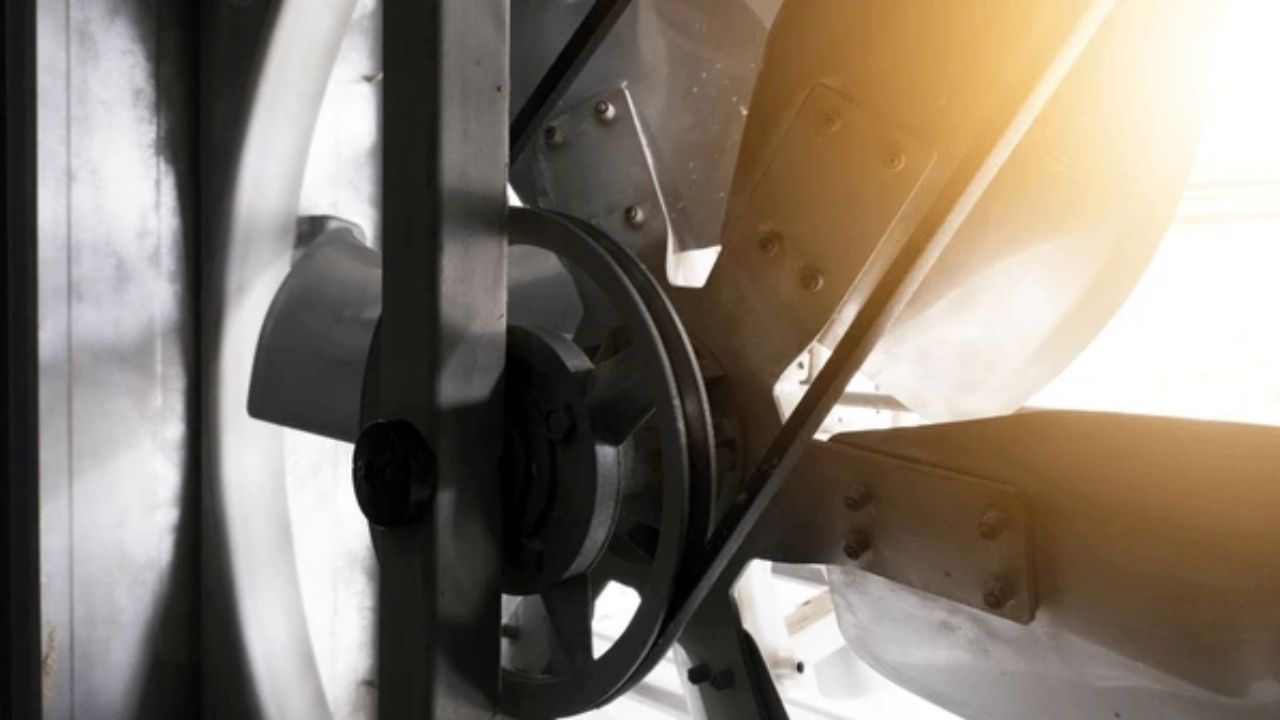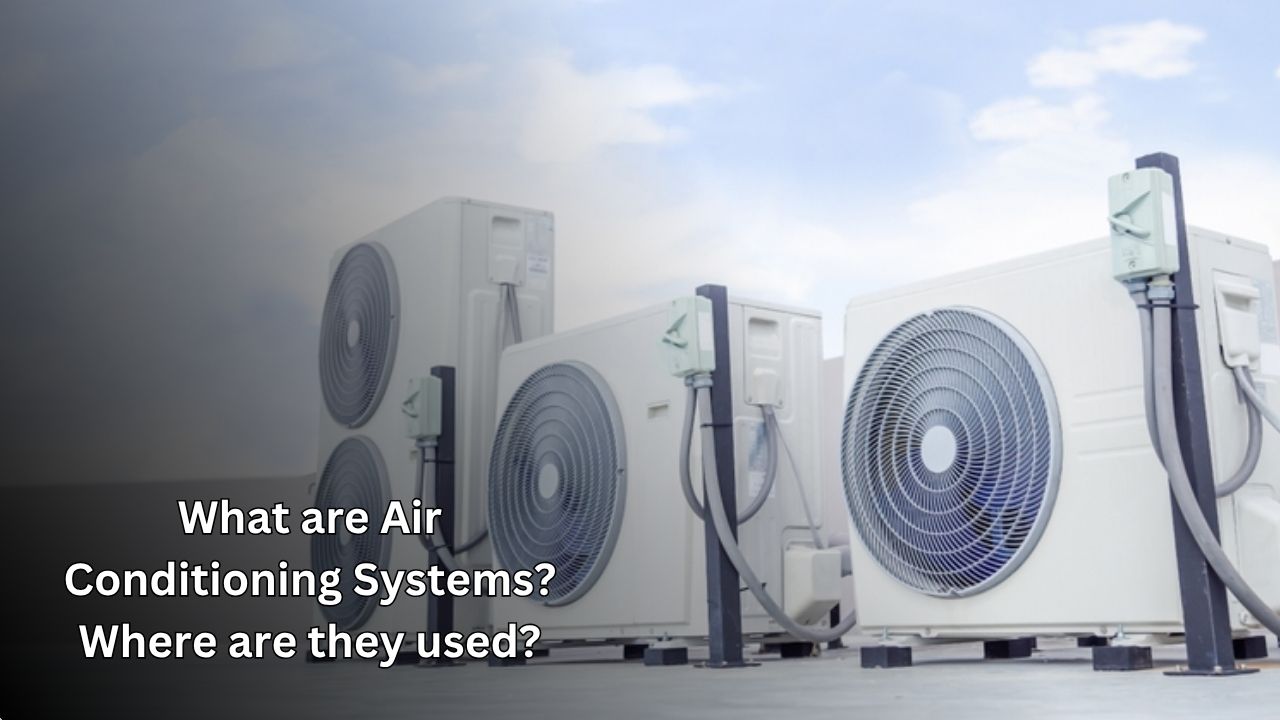
Axial Fan Types Performance and Application Areas


Air conditioning systems are technological solutions that control indoor temperature, humidity, and air quality to provide a comfortable environment. They are widely used in settings ranging from homes to industrial facilities.
The working principle is based on heating, cooling, or adjusting the humidity of air. These systems typically consist of components like a compressor, evaporator, condenser, and expansion valve. In the cooling cycle, a refrigerant absorbs heat and expels it outside, thereby cooling the environment.
Split air conditioners are among the most common air conditioning systems. Comprising indoor and outdoor units, these systems are frequently used in homes and offices. The indoor unit cools the air, while the outdoor unit expels excess heat, offering a compact and efficient solution.
Central systems are ideal for large buildings or facilities. They distribute conditioned air to multiple rooms via air ducts. These systems are preferred in large spaces like hospitals or shopping malls.
Energy efficiency is a key feature of modern air conditioning systems. Inverter technology adjusts compressor speed based on demand, reducing energy consumption. Additionally, smart sensors and IoT integration enable systems to operate more efficiently.
Choosing the right air conditioning system makes a significant difference in terms of comfort, energy efficiency, and cost. However, your needs and the application area determine which system is suitable.
First, the application area should be considered. Split air conditioners are ideal for homes or small offices. Their compact design allows for easy installation and effectively cools or heats a single room. For large buildings, central systems are more suitable, as they can condition multiple areas simultaneously.
Energy efficiency is another critical factor. Air conditioners with inverter technology adjust compressor speed based on need, reducing energy consumption. This provides cost savings, especially with prolonged use. Choosing models with high energy ratings (A++ or above) protects your budget.
Environmental conditions also influence the choice. In humid regions, systems with humidity control are a priority. For example, a split air conditioner that blows dry air enhances comfort in humid climates. In cold regions, systems with high heating capacity should be selected.
Ease of maintenance should also be considered. Split systems require less maintenance, while central systems need regular filter cleaning and technical inspections. Selecting a system based on your home or business’s maintenance capacity improves long-term performance.
Air conditioning systems provide comfort and efficiency by controlling indoor temperature, humidity, and air quality. These systems have a wide range of applications across various sectors and environments.
In homes and offices, split air conditioners are the most commonly used solutions. These systems create a comfortable environment in living spaces during hot or cold weather. Their compact designs make them ideal for homes and small businesses.
In commercial buildings, central air conditioning systems are preferred. Shopping malls, hotels, and office complexes use air ducts to distribute conditioned air to multiple zones, ensuring consistent temperature control in large spaces.
In hospitals and healthcare facilities, precision air conditioning is critical. Operating rooms and cleanrooms require specific temperature and humidity levels to reduce infection risks and ensure proper equipment operation.
In industrial facilities, air conditioning systems support production processes. For example, in food processing plants, cold air is provided to preserve product freshness. In electronics manufacturing, they prevent overheating of sensitive equipment.
In data centers, cooling systems ensure servers operate at optimal temperatures. Due to high energy usage, high-efficiency air conditioning solutions in these spaces enhance performance and reduce energy costs.

Air conditioning systems have a significant impact on energy consumption while providing indoor comfort. Properly designed systems improve energy efficiency, reducing costs and environmental impact.
The inverter technology in modern systems significantly enhances energy efficiency. By adjusting compressor speed based on demand, it prevents unnecessary energy consumption. For example, inverter split air conditioners can achieve up to 40% energy savings compared to fixed-speed models.
Heat recovery is another way to improve energy efficiency. Some central air conditioning systems recover waste heat to use in heating other areas, reducing energy costs in large facilities like hotels or hospitals.
Smart control systems also optimize efficiency. IoT-based sensors monitor ambient temperature and humidity in real-time, operating the system only when necessary. This provides significant savings in high-energy environments like data centers.
Insulation and duct design also affect energy efficiency. Well-insulated air ducts prevent loss of conditioned air, allowing the system to operate with less energy. For example, optimized duct systems in commercial buildings reduce energy consumption.
Air conditioning systems are devices that control temperature, humidity, and air quality to provide comfort and functionality. In some environments, these systems are essential not only for comfort but also for operational requirements.
In hospitals, particularly in operating rooms and intensive care units, air conditioning is mandatory. Stable temperatures and low humidity levels reduce infection risks and ensure proper functioning of medical equipment.
Data centers cannot operate without air conditioning systems. Precision cooling is required to prevent server overheating, ensuring continuous, high-capacity cooling to maintain equipment performance and improve energy efficiency.
In food production facilities, cold chain processes require air conditioning. For example, in milk or frozen food production, low temperatures are necessary to prevent spoilage, ensuring product safety and quality.
In industrial production environments, particularly in electronics or pharmaceutical sectors, air conditioning systems are critical. Temperature and humidity control during the production of sensitive components directly impacts product quality.
In commercial buildings like shopping malls and hotels, air conditioning is essential for customer comfort. Central systems provide consistent climate control across large areas, enhancing user experience.
Air conditioning technologies offer innovative solutions that provide comfort in modern living spaces while optimizing energy consumption. These systems are continuously evolving to improve energy efficiency and environmental sustainability.
Inverter technology has revolutionized air conditioning systems. By adjusting compressor speed based on demand, it reduces energy consumption. For example, inverter split air conditioners can save up to 40% energy compared to fixed-speed systems.
Smart control systems take energy efficiency to the next level. IoT integration allows systems to monitor ambient temperature and humidity in real-time, preventing unnecessary energy use in data centers or commercial buildings.
Heat recovery is a key feature of modern air conditioning systems. Designed to reuse waste heat in other areas, this technology reduces energy costs in large facilities like hotels and hospitals.
Eco-friendly refrigerants are another innovation in air conditioning technology. Low global warming potential refrigerants, such as R32, are both efficient and less harmful to the environment.
Modular designs increase the flexibility of air conditioning systems. These systems can be easily adapted to different spaces and simplify maintenance processes, reducing long-term costs.

Fill out the form to discover the most suitable high-end products for your projects. Contact Us Now.